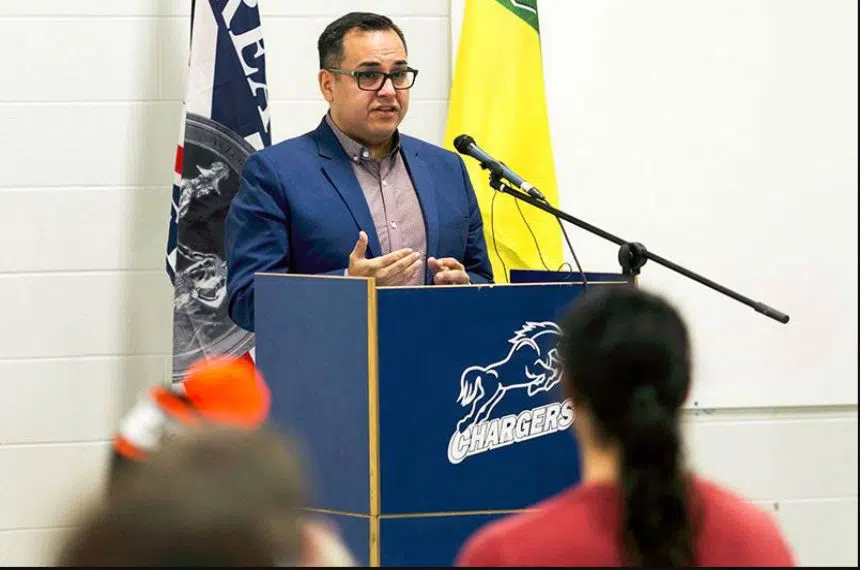The province’s children’s advocate is doing his part to address a high number of suicides among Indigenous youth in northern Saskatchewan.
A report looking at the problem and possible solutions was tabled in the legislature on Tuesday.
The document authored by Corey O’Soup is a result of extensive consultation among indigenous youth and elders across northern Saskatchewan.
“We talk about youth and we talk about suicide, but rarely do we ever go and speak to them about it,” O’Soup said. “Now we actually have what the youth are saying and thinking and what they feel needs to be done.”
It comes in response to troubling data that finds the suicide rate in Saskatchewan is 26 times higher for First Nations girls than non-First Nations girls aged 10 to 19.
The rate is six times higher for First Nations boys than non-First Nations boys within the same age range.
In October 2016, six Indigenous girls between the ages of 11 and 14 committed suicide.
“We need to dig a little bit deeper, and that’s what the kids are telling us,” O’Soup said.
The advocate noted he heard from many children who said, “when we say we’re okay, we’re not necessarily okay. So you need to ask us again and again and again.”
Tuesday’s report identifies several factors that contribute to the problem, one of which is bullying.
Based on feedback given from those who took part in the report, the abuse ranges from making people feel marginalized, to cyber bullying and outright physical beatings.
The impact of substance misuse was also listed as a challenge for some.
Substance abuse was identified as a key theme by many who said the problem was having a direct impact on their community, family or themselves.
Another big issue identified was a lack of emotional support for those who were suffering.
The children’s advocate lists a number of calls to action.
They include more activities to keep kids busy, as many said there were not enough for all ages.
There is also a call for an increase in metal health resources in the community that meet the needs of children, as well as increase in suicide awareness education.
There is also a call for the federal government to work with, and fully support, the Federation of Sovereign Indigenous Nations (FSIN) and the Metis Nation-Saskatchewan to support suicide strategies.
‘Captures the voices’
Tammy Cook-Searson, chief of the Lac La Ronge Indian Band, said she welcomed the calls to action.
“The report captures the voices of Indigenous youth on the realities they face and experience, and allows them to be a part of the solutions that will lead to meaningful change in their quality of life,” Cook-Searson said.
She praised O’Soup’s staff for visiting communities and schools throughout the region as part of preparing the report.
—With files from paNOW.











